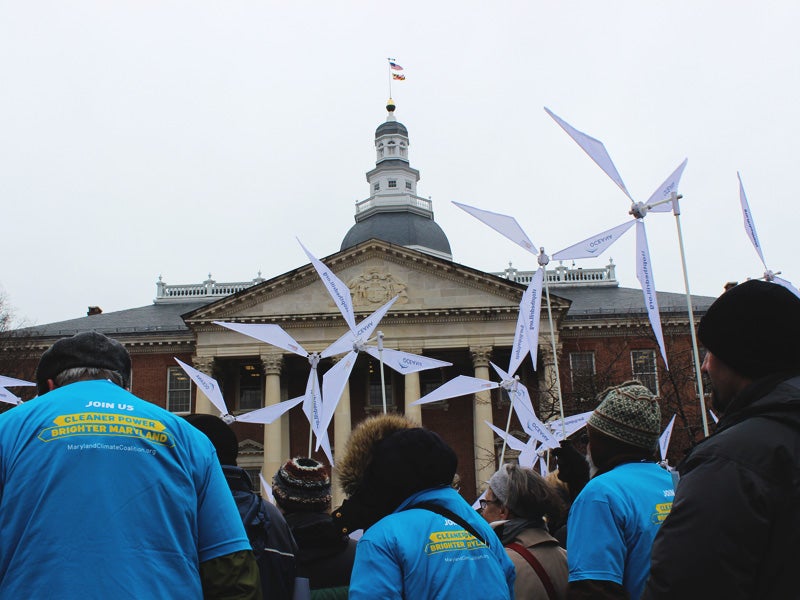Maryland Passes Suite of Encouraging Climate and Energy Legislation
These bills mark a turning point in the state’s journey to transition away from fossil fuels toward clean energy and transportation.
Maryland passed several bills this session that pave the way for a greener, healthier, more sustainable future. This marks a turning point in the state’s journey to transition away from fossil fuels toward clean energy and transportation. With these bills, the General Assembly recognizes we must transition away from electricity powered by burning gas, oil, and coal — fuels that play an outsized role in the state’s greenhouse gas emissions. The Assembly further recognizes that achieving this transition requires urgent and multi-layered action that centers justice and equity and prioritizes workers and low-income communities.
HB 298, introduced by Delegate Lorig Charkoudian, will require the Public Service Commission to consider the climate effects and emissions in its regulation of gas, electric, telephone, water, and sewage disposal companies. In every aspect of its utility regulation, the Commission must now consider climate change for the first time. When evaluating electricity generation, HB 298 requires that a project’s impacts on greenhouse gas emissions are consistent with the state’s reduction goals — this means cutting emissions by nearly 50%from 2006 levels in the next nine years, and reaching net-zero emissions by 2045, as outlined in the recently published 2030 Greenhouse Gas Reduction Act Plan. This bill also includes a mandate for fair and stable labor standards for affected workers. Combined with the comparable pay bill (SB 95/HB 174) that requires utility infrastructure contractors to receive wages comparable to the prevailing rate, these changes will provide protections to workers as we transition to a fossil-free future.
While cleaning up the power generated by utilities, Maryland will also work to improve access for limited income families. The Limited-Income Mechanisms and Assistance bill (SB 392 / HB 606) requires utilities to help low-income customers afford utility service, expands the electric universal service program, which provides financial assistance for electric bills, and establishes a workgroup to study low-income energy assistance programs. This is a recognition that energy costs disproportionately burden low-income individuals and families, and doubles down on the state’s commitment to address this problem more aggressively. These changes will help lower energy bills for those who need it most.
The Assembly also passed legislation that will help boost solar production. With HB 569, Maryland’s limit on net metered capacity doubled from 1,500 megawatts to 3,000 megawatts. Net metering allows people who generate their own electricity, like those with rooftop solar panels, to receive a credit for their unused energy that gets returned to the utility. Not only will this save people money, it will increase the amount of energy available to everyone on the grid. While this increase may not sound like much, doubling the limit will attract more solar developers to Maryland and increase the number of solar jobs and availability of solar energy in the state.
Finally, beginning in 2023, all buses purchased for the state transit fleet must be zero-emissions. The passage of the Zero-Emission Bus Transition Act (SB 137), will lead to a complete transition of Maryland’s public bus fleet, reduce emissions and provide economic, health, and environmental benefits. Adopting electric buses will reduce harmful air pollutants produced by diesel that harm the lungs and cause asthma, and save the state $400,000 in lifetime fuel and maintenance costs per vehicle.
While the legislature made important strides this spring that will help decarbonize Maryland’s electricity grid and transportation sector, additional steps must be taken to ensure that Maryland reaches net zero emissions. In its next session, the General Assembly must pass additional requirements for electrification of our buildings and transportation. In order to achieve a just and equitable zero-emissions future, Maryland must continue to move forward and boldly commit to electrifying everything and ending its reliance on fossil fuels.
Earthjustice’s Clean Energy Program uses the power of the law and the strength of partnership to accelerate the transition to 100% clean energy.
Earthjustice Media Relations Team
media@earthjustice.org
